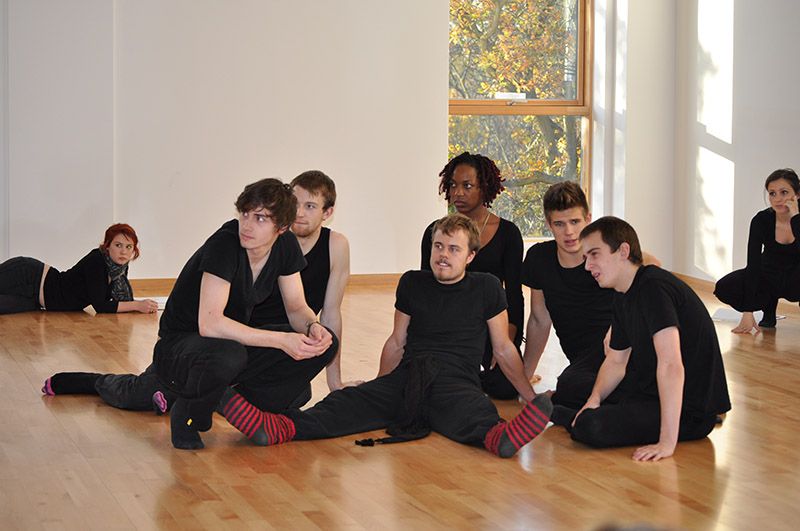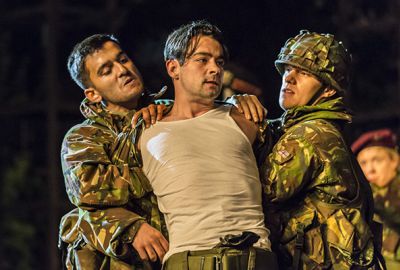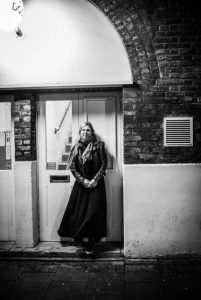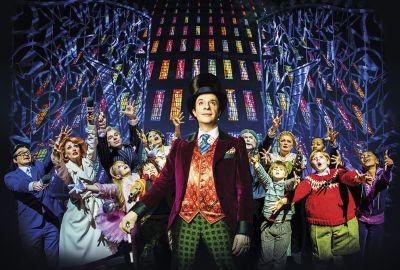

Credit Steve Porter
“Drama school” has always been a very loose term. It covers such a range – from a 20 year old musical theatre training provider such as LIPA to the small scale Dorset School of Acting in Poole and from famous giants such Guildhall School of Music and Drama to tiny training theatre companies like Cygnet in Exeter. They’ve always been a disparate bunch. Today that’s more so than ever and the “how do you choose?” question is almost impossible to answer simply.
Thirteen schools, including Mountview, Rose Bruford and Drama Studio in London and Birmingham School of Acting and Guildford School of Acting elsewhere are accredited by Drama UK. This is the rump of the old Conference of Drama Schools. In their different ways such schools are part of the state higher education system. Their students are eligible for student loans. Until recently they were also entitled to grants if they came from very low income families, but the government last year announced the end of all grants for higher education.
Then there’s another group – RADA, LAMDA and Bristol Old Vic – which function as part of the Conservatoire of Dance and Drama, through which the Higher Education Funding is channelled, along with four dance schools and the National Centre for Circus Arts. The CDD is, in effect, a bit like a collegiate university. Like those in Drama UK schools these students are eligible for loans and so on too.
These schools are the most famous and the ones which people outside the industry think of first. Even Neil Fraser, Head of Technical Theatre at RADA, doesn’t know why RADA has always been the first school to spring to the lips of Joe Public. “Maybe it’s the Royal badging” he says, “although Royal Conservatoire of Scotland, Royal Welsh College of Music and Drama and Royal Central School of Speech and Drama have that too.” And LAMDA is, perhaps, a special case, because thousands of young people do its exams so that they are very familiar with the name even before they’re ready to consider drama school.
Schools such as Oxford School of Drama, founded and still run by George Peck, are independent and not part of any group – since it parted company with Drama UK last year. “Our courses are inspected by Ofsted because we’re part of the DaDA scheme” says the school’s executive producer, Kate Ashcroft. So there is still a very significant endorsement of quality. Moreover Oxford School of Drama was adjudged by the website Acting in London one of the world’s top five schools alongside Guildhall, RADA, Julliard and Yale.
Even without formal accreditation or endorsement the proof of the pudding, as ever, is in the eating. If a school can produce dozens of industry-ready graduates who go straight into work and continue to get plenty of jobs then the training has proved itself. The MTA is probably the best example. Founded by Annemarie Thomas Lewis in 2009 it has, to date, for its two year course, achieved a 100% success rate in getting graduating students signed up to decent, external agents and – at any time – over 70% of its former students in work. With statistics like that, accreditation, badging or endorsement becomes irrelevant.
Some of the small independent schools are having a lot of success with foundation courses and getting students into drama schools too. Dorset School of Acting and Reed College, Reading for example, both have a high hit rate.
The trouble, of course, with going to a completely independent school – Courtyard Theatre, Fourth Monkey, PPA in Guildford or the new Midlands Academy of Musical Theatre which is due to open this autumn, for instance – is that there is no state assisted funding for it. Unless the school itself is awarding scholarships (sometimes in association with The Stage) the fees have to be paid by the student. Career development loans from banks are sometimes available, however.
Many drama schools, moreover, teach a great deal more than drama. The larger ones also run extensive technical theatre programmes and, especially at post graduate level, courses in areas such as producing, play writing, directing and much more. Arguably it is an advantage to be in a school where so much is going on at so many levels because every student gets the chance to rub shoulders – and collaborate artistically – with others from different, but related, disciplines.
Drama training is a changeable industry just to blur the picture further. In recent years a number of drama schools have merged with – or been taken over by – universities and the level of autonomy retained by the schools seems to be variable. Examples of this include Royal Central School of Speech and Drama, now part of University of London, Birmingham School of Acting now part of Birmingham City University and Guildford School of Acting which is now part of University of Surrey.
In many cases these mergers provide the drama schools with fine new premises. Drama Centre, for instance, which is part of Central St Martin’s which is part of University of the Arts London, has enviable studios, library, on-site theatre and other facilities in the Granary Building at Kings Cross. East 15 which is part of The University of Essex, has a well converted second campus at Southend and a big building programme underway at Loughton. And of course any student whose training is part of a university has access to all the same benefits as other students. So there are clear advantages.
On the other hand there are constant negotiations in some of these schools relating to the high cost of drama training in comparison with, say, training a mathematician or a historian in the same university. Drama students, if their training is to be fit for purpose, need 30 hours a week of face to face teaching and that costs the university a lot of money.
What all this boils down to is that it’s impossible to generalise about drama school. Each one is unique and each has its advantages and disadvantages. The key thing for anyone approaching the tangled maze of which to apply for is to find out about the outcomes for recent students who did the course you’re interested in. If it’s a foundation course did they progress to drama schools? If it’s a vocational school then did, say, last year’s graduates get agents and how many of them are now working? All good schools have detailed records of where their alumni are and what they’re doing.








